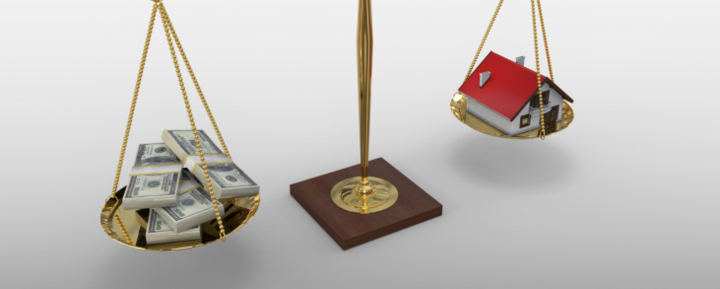If you’ve been sued by a creditor and lost the court case, you may be subject to a judgment lien. This legal claim can have an impact on your financial situation and your property, so it’s important to understand how it works, as well as how to get one removed.
Here’s what you need to know and how you can get help if you’re feeling overwhelmed.
Understanding Judgment Liens
A judgment lien is a legal claim a lender or debt collector can place on a debtor’s property after winning a collection lawsuit for unpaid debt. Once a court issues a judgment, the lien may apply to your bank account, personal property, real estate, and even business assets.
The lien doesn’t necessarily mean you’ll lose your assets right away, and it doesn’t mean the creditor now owns the asset. However, it can complicate things if you try to sell the asset.
How Judgment Liens Are Created
As the term’s name suggests, judgment liens are created when a court enters a judgment against you in favor of a creditor.
When a creditor sues over unpaid debt and wins, the court issues a judgment confirming the amount owed. With that judgment in hand, the creditor can then take the next step of recording it with the county or state where you own property.
Recording the judgment turns it into a lien, officially attaching certain assets of the judgment debtor and giving the creditor a security interest in the property, which can affect future sales, refinancing, or transfers.
In many cases, the lien sits quietly until the property is sold, at which point the creditor can claim what they’re owed from the proceeds.
Types of Judgment Liens and What They Mean for You
There are generally two types of liens you may be subject to after losing a debt lawsuit, including real property liens and personal property liens:
- Real property liens: A real property lien attaches to the debtor’s real property — for example, your home or land. This creates a legal claim that must be resolved before you can sell or refinance.
- Personal property liens: In some states, judgment liens can also attach to personal property like vehicles, business equipment, or valuable items. These liens can limit your ability to sell or transfer those assets to someone else.
The Impact of a Judgment Lien on Your Finances
Judgments no longer show up on your credit reports. However, a judgment lien can still impact you in a variety of ways, including the following:
- Shows up in public records, which lenders review when assessing a loan application.
- Makes it harder to get approved for loans and credit cards with favorable terms.
- May trigger wage garnishment or bank account levies.
- May limit access to certain financial opportunities, especially those involving credit.
With a lien on real property, you typically won’t be able to complete a sale or refinance until the lien is resolved—buyers and lenders won’t touch a property with a clouded title.
Enforcing a Judgment Lien: What Creditors Can Do
Once a judgment lien is in place, creditors have several ways to enforce it. In many cases, they wait for the debtor to sell or refinance property—at which point they get paid from the proceeds. In some states, creditors can take it further by forcing the sale of property through a legal process, though that’s less common with primary residences.
Judgment liens don’t last forever, but they can stick around for a while—typically 5 to 20 years, depending on state law and the type of lien. What’s more, creditors can often renew the judgment and the lien before its period expires. So, even if you’re not planning to sell property now, the lien could still affect you years down the road.
How to Remove or Avoid a Judgment Lien
Removing a judgment lien isn’t always simple, but you do have options. Depending on your financial situation and legal standing, several paths may help clear the lien from your property.
Pay the Debt
The most straightforward way to remove a lien is by paying the judgment in full. Once paid, the judgment creditor must file a satisfaction of judgment, which clears the lien. Make sure this gets recorded with the county to officially remove the lien from your property records.
Negotiating a Settlement
If you have the money to pay back some of what you owe — either in a lump sum or in regular payments — the creditor may agree to release the lien. If you pursue this option, it can help to consult with a debt lawyer. Also, be sure to get the agreement in writing and confirm the lien release is officially recorded.
File for Bankruptcy
In some cases, both Chapter 7 and Chapter 13 bankruptcy may allow you to avoid or “strip” a lien if the property is exempt and the lien impairs that exemption.
However, this isn’t automatic, and the process can get complicated and expensive, so it’s a good idea to consult with a debt relief attorney before filing bankruptcy.
Contact the Court
You may also request that the court remove the lien by filing motions to vacate or avoid the lien, especially if the judgment was entered in error or the debt has already been resolved. That said, overturning a valid court order will be incredibly difficult.
Your Legal Rights as a Debtor Facing a Judgment Lien
Judgment liens may feel overwhelming, but you still have rights and options. In some cases, you can challenge the lien, especially if the judgment was entered in error or the creditor failed to follow proper procedures.
As previously mentioned, you may also have legal grounds to remove or avoid the lien through bankruptcy or by claiming property exemptions.
Before taking action, it’s essential to understand the lien’s specifics, including how much you owe, when the lien was recorded, and what property it affects. Acting without this context can backfire.
Consulting a debt attorney can help you identify the best path forward and avoid unintended consequences.
The Bottom Line
A judgment lien can feel like a heavy weight, but it doesn’t have to define your financial future. With the right information and legal advice, you can explore options to challenge, settle, or remove the lien. If you’re unsure where to start, talking to an experienced debt attorney can help you protect your rights, clear the path forward, and regain control of your finances.
Tayne Law Group has been helping clients resolve their debts for more than 20 years. We offer a free, no-obligation phone consultation so you can talk one-on-one with one of our experienced staff members to learn your options. And you don’t have to worry about paying a dime unless you decide to hire our services. Call our offices at (866) 890-7337 or fill out our short contact form for a free consultation. We never share or sell your information.





